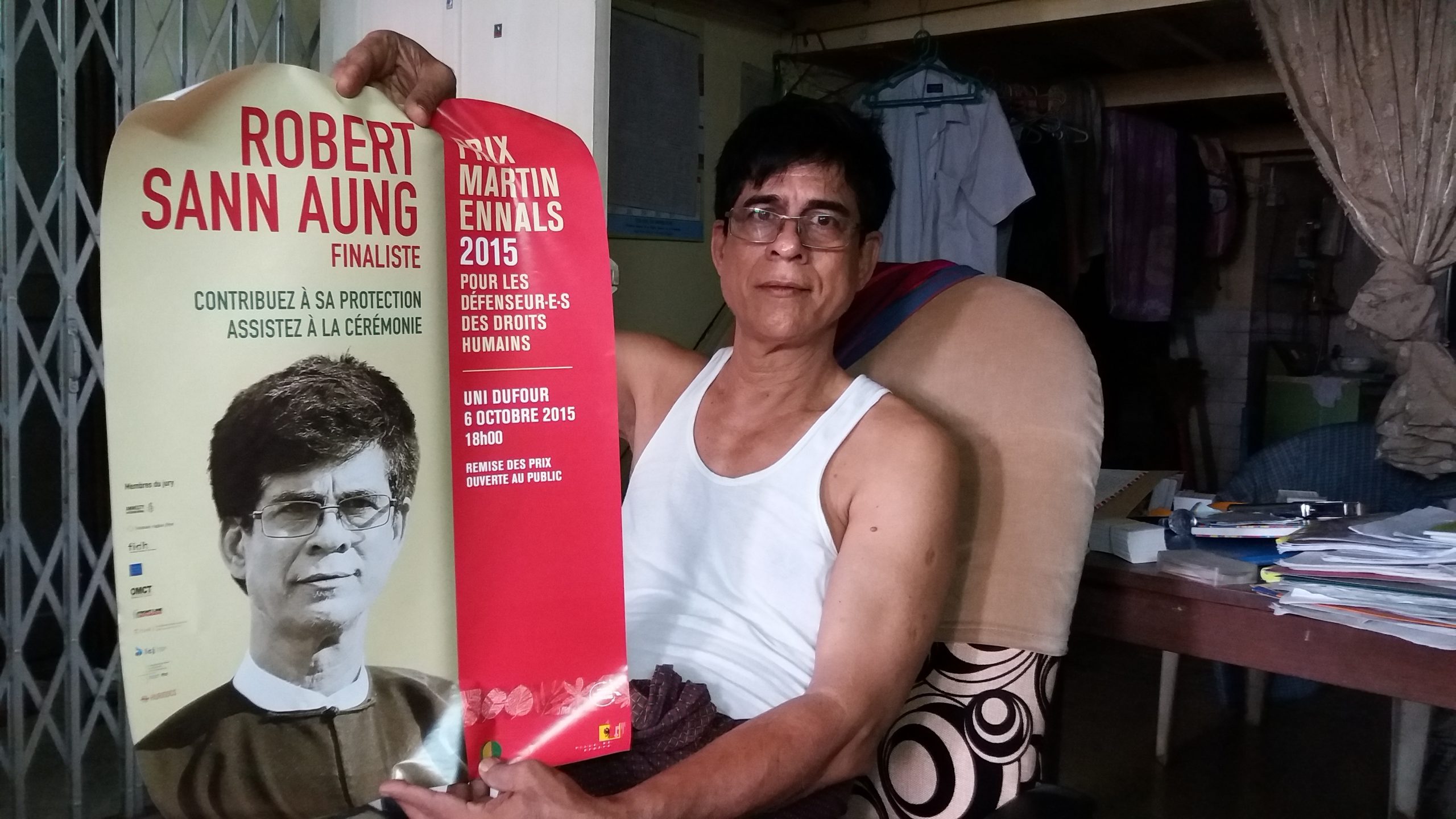On 17 January, lawyer Robert Sann Aung was sitting in his office in downtown Rangoon listening to Voice of America‘s Burmese-language broadcast when he heard a report that Gambira, one of the leaders of the 2007 monk-led Saffron Revolution, had been arrested in Mandalay for allegedly entering the country illegally from neighboring Thailand. Within minutes, the lawyer was out the door, ready to add the former monk to his growing list of pro bono clients.
As the celebrated human rights defender explained to DVB in his small apartment, he jumped at the chance to help Gambira because of their shared personal history. They first met in 2006 as members of the democracy movement, and would eventually spend two years together as inmates in Kale prison in the aftermath of the Saffron Revolution.
Gambira, who has another trial date today in Mandalay, is just one of many high-profile cases Robert Sann Aung has taken in the last several months, as police and other authorities have carried out a broad crackdown on democracy activists that Amnesty International has called “deeply disturbing”. He is also representing a handful of student protesters from Letpadan, as well as the poet Maung Saungkha, who was arrested for posting a lewd poem about former President Thein Sein on his Facebook profile. He is also providing legal counsel for Ma Thandar, the widow of reporter Par Gyi, who was killed in army custody in late 2014.
While he dutifully follows the rules of all court proceedings, Robert Sann Aung is open about the corruption plaguing the nation’s courts. “Our judicial [system] does not have free and fair trials,” he said. “Some judges have become judicial dictators — they need to be moved out.”
How this and other legal reforms will take place under the new NLD-led government remains to be seen. As Robert Sann Aung himself points out, the military, through the Home Affairs Ministry and police, still exerts a great deal of control over the justice system.
While he is largely optimistic about the new government, he said that President Htin Kyaw had already made a mistake by giving the position of attorney general to Tun Tun Oo, an appointee from the Union Solidarity and Development Party with no experience practicing law. “Why did U Htin Kyaw appoint him? It’s amazing.”
Still, the lawyer and activist said he expected to see huge reforms within the next two years as the NLD settles into power. He went on to make a bold prediction — a large-scale presidential amnesty on 17 April to mark the Buddhist New Year. “It’s only my opinion, but the president has all the power to do it.”
[related]
In the meantime, Robert Sann Aung said he and his associates will continue doing their pro bono work for activists all over the country, but maintains that they will only be truly protected when the nation has a strong, independent court system. “We urgently need rule of law…we need free and fair trials.”
Final sentencing for Gambira will take place after this month’s water festival.



